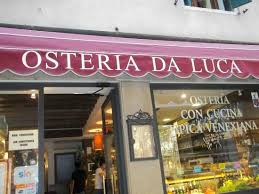The restaurant in Venice which hit the headlines after charging four diners around €1100 (NZ$1800) for four steaks, fried seafood, a bottle of wine and water, is making the news again.
 Osteria da Luca near St Mark’s Square is facing potential fines of €20,000 ($33,897) for breaches of health and safety, and food hygiene regulations, reports The Guardian.
Osteria da Luca near St Mark’s Square is facing potential fines of €20,000 ($33,897) for breaches of health and safety, and food hygiene regulations, reports The Guardian.
It also faces other infringements including issues over the accurate description of goods.
The La Nuova Venezia newspaper said the investigation could “produce total fines running into tens of thousands of euros”.
The Mayor of Venice Luigi Brugnaro hit out at the eaterie after the €1100 bill was doled out to the Japanese tourists.
“If this shameful event is confirmed, we’ll do everything we can to punish those responsible,” he said on Twitter.
The restaurant has a rating of 1.5 stars on Tripadvisor.
Venice, one of the world’s most popular tourist cities, has a reputation for brazenly overcharging its visitors.

.jpg) 17. One family to Egypt suffered with food undercooked, poor chef hygiene practices (one chef was seen to handle bloody meat then touch other food), flies on the food in the pool bar, sewage smells in bathroom, cracks on the balcony and they are suspected as suffering with Cryptosporidium.
17. One family to Egypt suffered with food undercooked, poor chef hygiene practices (one chef was seen to handle bloody meat then touch other food), flies on the food in the pool bar, sewage smells in bathroom, cracks on the balcony and they are suspected as suffering with Cryptosporidium.